Financial Management for Short-Term Rental Investments
Learn why financial management of Short-Term Rental properties is important, what metrics you should track, how to maximize your return on investment (ROI).
June 1, 2023
Olivia
.png)
Whether you're a vacation rental management company, an amateur, or an experienced rental property investor, it pays to understand the nuances of financial management, which is essential to ensuring your investment reaches its full potential.

This article delves into why financial management of rental properties is essential, what metrics you should track, and provides information on maximizing your return on investment (ROI). So let's get started!
Financial Management for Short-Term Rentals

Managing finances is an essential part of running a successful short-term rental business. Analyzing rental property transactions is crucial for determining rental rates and understanding the property's profitability.
Monitoring cash flow is also essential to ensure that the rental generates enough revenue to cover expenses and turn the initial investment into a profitable venture. Budgeting is another key element in financial management, as it allows property managers and owners to plan for expenses and adjust pricing accordingly.
Accurate financial reporting is critical for Short-Term Rental owners, as it provides an overview of the business's financial health. Utilizing financial management solutions can streamline this process, making it easier to track revenue, expenses, and overall profitability.
Finally, it's essential to understand short-term vacation rentals' tax implications and ensure that all necessary taxes are paid to avoid penalties and legal issues. By implementing effective financial management strategies, Short-Term Rental owners can maximize profits and run a successful business.
Analyzing Rental Property Transactions
Short-Term Rental property management requires careful financial planning. To make smart decisions about pricing and expenses, you must continuously analyze your rental property's transactions.
Start by assessing your rental property's location and income potential. Ask yourself: What's the area's Short-Term Rental market demand? How much can I realistically charge per night or week? How does my rental's pricing compare to similar properties in the area? By answering these questions, you can determine a competitive price point for your rental.
Next, keep track of all expenses related to managing your Short-Term Rental, including cleaning fees, maintenance costs, utility bills and marketing expenses. Accurately tracking these expenses can help you understand the true profitability of your rental property. If your rental isn't currently profitable, you can identify areas to make adjustments and improve your financial performance.
Finally, it's important to monitor your rental's occupancy rates to maximize its income potential. By analyzing occupancy data and adjusting pricing and availability, you can optimize your Short-Term Rental's performance and increase profitability.
Monitoring Cash Flow

Another important part of financial management concerning Short-Term Rentals is cash flow. Estimating your cash flow potential involves projecting the income your rental property will generate and anticipating all the expenses associated with the property. This helps you ensure you can cover your expenses and profit from your Short-Term Rental investment.
So, how do you go about estimating cash flow for your rental property? Here are a few tips:
- Figure out how much rent you can reasonably charge for the property. Researching comparable rentals in your area can help here.
- Estimate any other income you may receive from the property, such as late fees or pet fees.
- Choose appropriate insurance coverage to mitigate risk and ensure that any financial losses will be covered.
- Calculate all expected recurring expenses associated with running the rental, such as taxes, maintenance costs, repairs, and marketing.
- Factor in costs related to guests turnovers, such as cleaning, advertising, and inspections
- Determine if there are any one-time expenses associated with getting the rental ready for guests
By taking the time to estimate cash flow for a rental property accurately, you’ll have a clear picture of how much revenue you can expect, which allows you to budget for expenses accordingly. This will help you make responsible decisions regarding the cash flow associated with each rental property.
Budgeting

Budgeting is a key component of financial management for Short-Term Rentals. By creating a budget, you can project your income and expenses and plan accordingly. Start by listing all of the expenses associated with your Short-Term Rental, including utilities, maintenance costs, and marketing expenses. Be sure also to include variable expenses like your property taxes, insurance, and fees associated with managing the rental.
Once you have a comprehensive list of expenses, determine how much revenue you expect to generate from the rental property. This will help you understand how much you can afford to spend on expenses and how much profit you can anticipate. If you find that your expenses outweigh your revenue, you may need to adjust pricing or find ways to reduce expenses to make your vacation rental profitable.
Budgeting is an ongoing process, and you should continuously monitor your expenses and revenue to ensure that your budget remains accurate. By effectively managing your budget, you can maximize your vacation rental business's profitability and set your Short-Term Rental business up for success.
Financial Reporting

Accurate financial reporting is crucial for Short-Term Rental owners and property management companies to understand the financial health of their businesses. Financial reports help you track your rental property's revenue, expenses, and overall profitability. It's important to create financial reports regularly to stay on top of your rental property's financial performance and make informed decisions about managing it.
Some of the key financial reports that Short-Term Rental owners should generate include:
- Profit & loss statement: This report summarizes your rental property's revenue and expenses for a specific period, typically a month or a year. It shows whether your rental property is profitable or not.
- Balance sheet: This report provides a snapshot of your rental property's financial position at a specific point in time. It shows your assets, liabilities, and equity and helps you understand the financial health of your vacation rental business.
- Cash flow statement: This report tracks the cash inflows and outflows of your rental property over a specific period. It helps you understand the financial sources, manage revenues, and assess your ability to cover your expenses.
Generating these financial reports can be time-consuming and challenging, especially if you don't have a financial background. However, using financial management software can help you streamline the process and generate accurate financial reports automatically. These tools can also provide you with insights into your rental property's financial performance, allowing you to make data-driven decisions about managing it.
Financial Management Solutions
Technology has made financial management for Short-Term Rentals easier and more efficient than ever. A variety of software tools are available that can help rental property owners track their financial transactions, automate tasks such as invoicing and payments, and generate detailed reports on financial performance.
A new and innovative option for financial management regarding rental properties is a cash management solution. Clearing works by allowing property owners or managers to create zero-balance accounts for each property, allowing for direct insight into how cash is flowing through each property specifically. These can be automatically categorized as transactions and integrated with accounting software solutions like QuickBooks to streamline the accounting process and keep real estate investors on track of every transaction that occurs in the business.
Tax Implications for Short-Term Rentals

Short-Term Rentals are subject to a variety of tax laws and regulations, which can vary depending on the location of the rental property. It's important for rental property owners to understand the tax implications of their Short-Term Rental business and to ensure that they are complying with all relevant laws.
In general, Short-Term Rental income is considered taxable by the IRS and must be reported on annual tax returns. Additionally, some states and municipalities may require rental property owners to collect and remit occupancy taxes or other local taxes.
To ensure compliance with tax laws and regulations, rental property owners should keep detailed records of all financial transactions related to their Short-Term Rental business. It may also be advisable to consult with a tax professional who can provide guidance on tax planning and preparation. By staying on top of tax obligations, Short-Term Rental owners can avoid penalties and legal issues while maximizing their profitability.
In conclusion, proper financial management of your rental property is an essential part of keeping your investment on track. By taking a proactive approach to managing your rentals, you can save money and avoid making costly mistakes.
Proper financial management with the help of a powerful software solution like Clearing will enable you to maximize your rental income, keep your property well-maintained, and be prepared for any bumps in the road.
Clearing is a Financial Technology Company, not a bank.

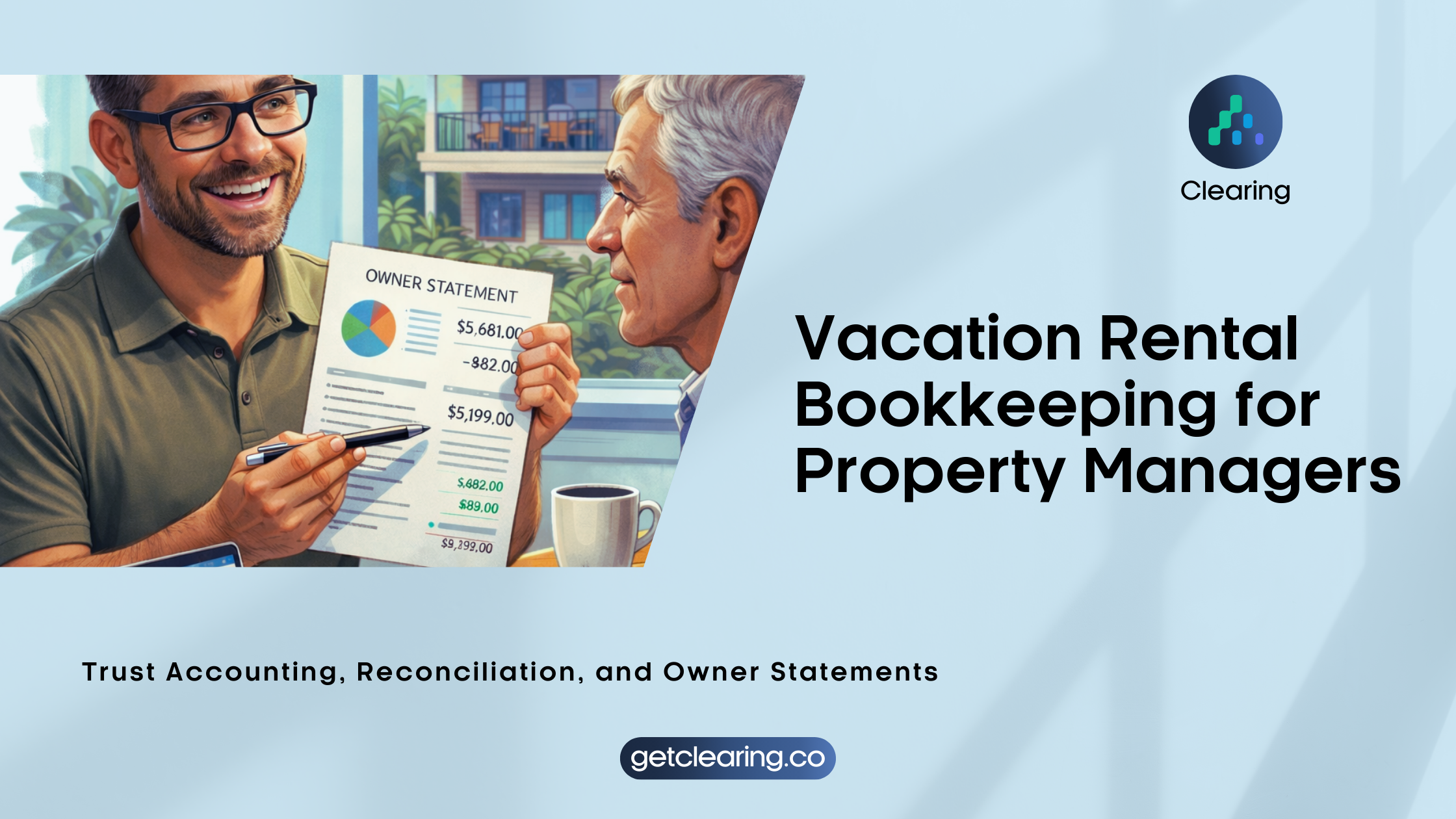



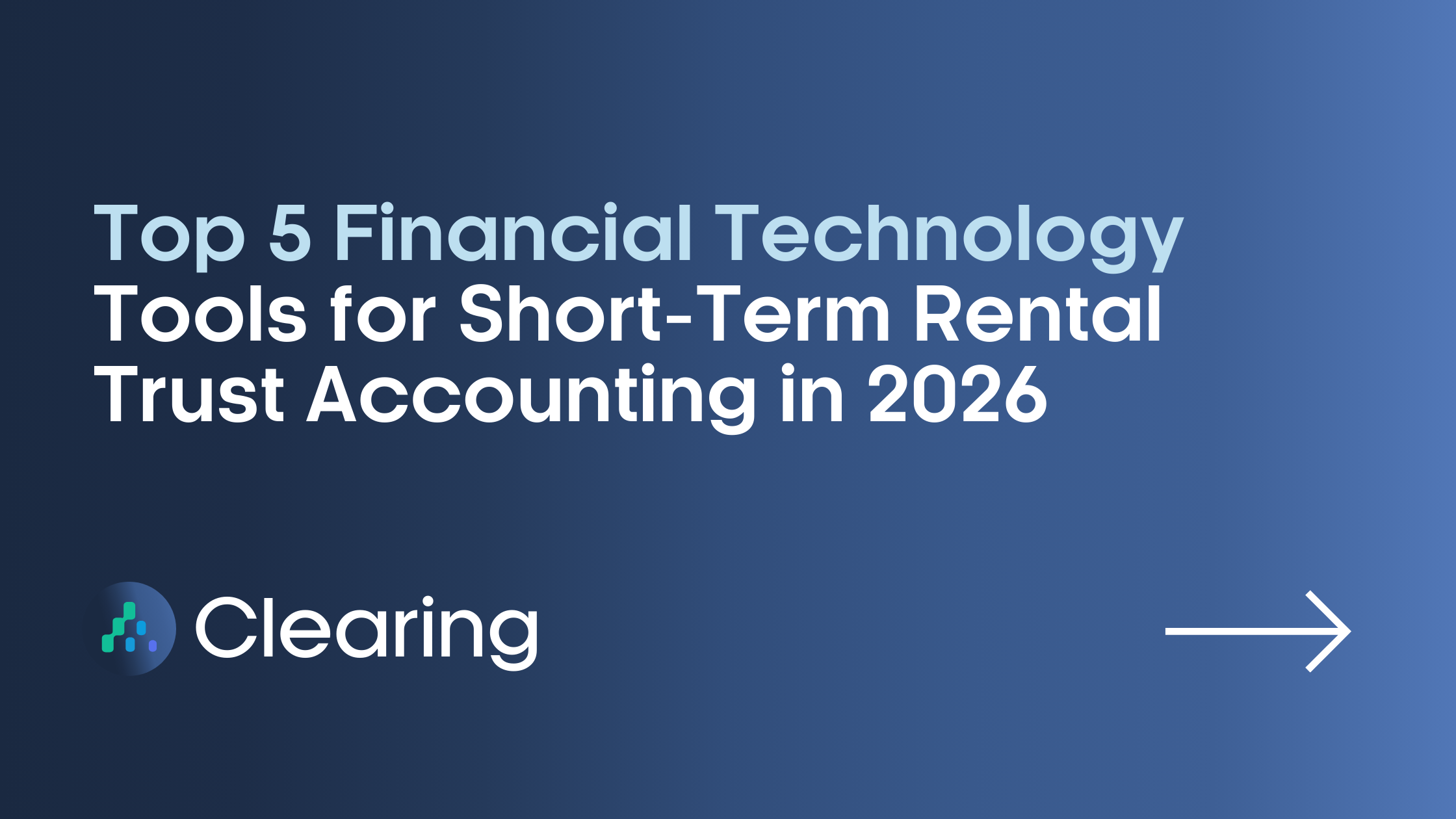
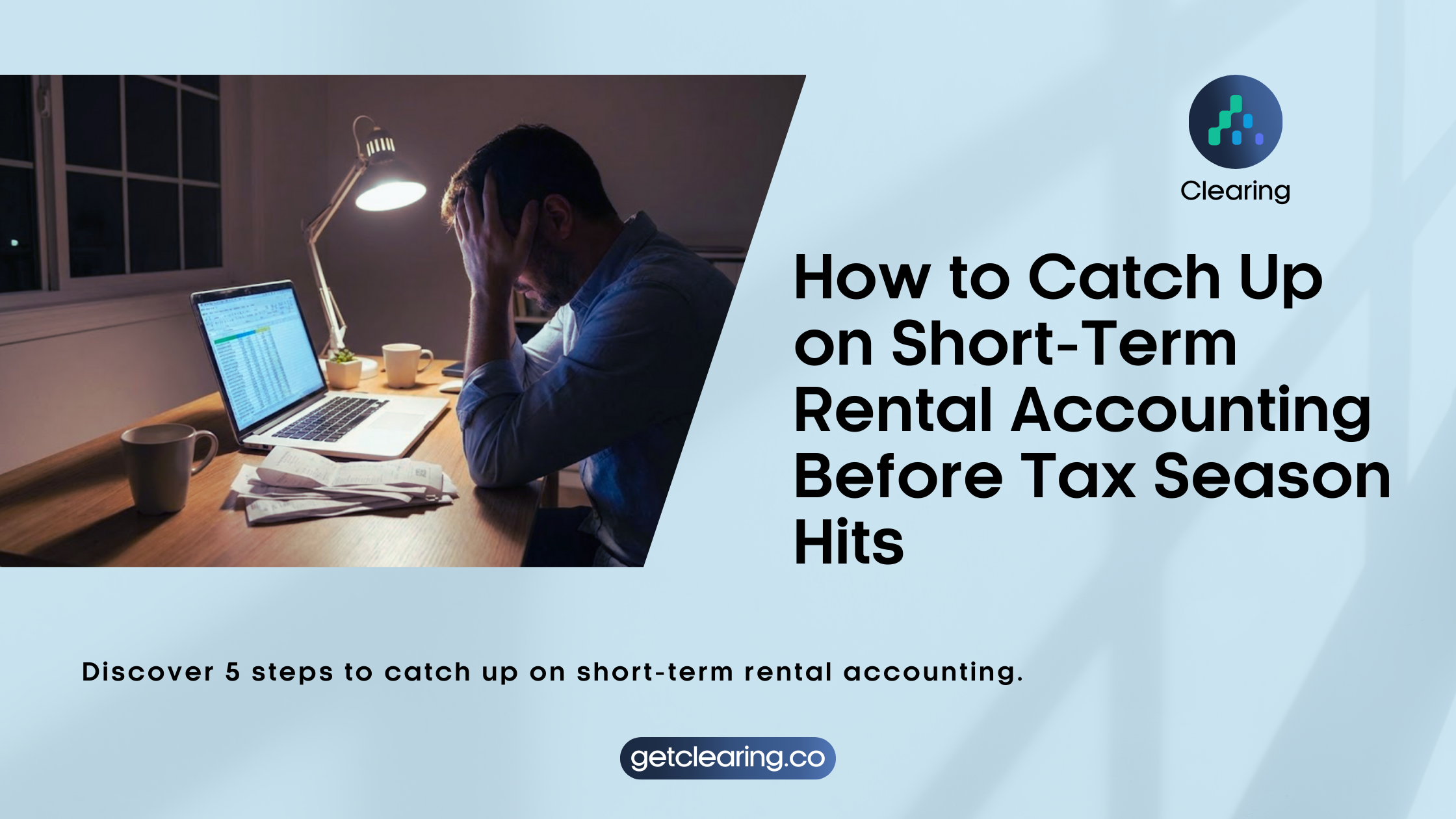
.png)
.png)
.png)
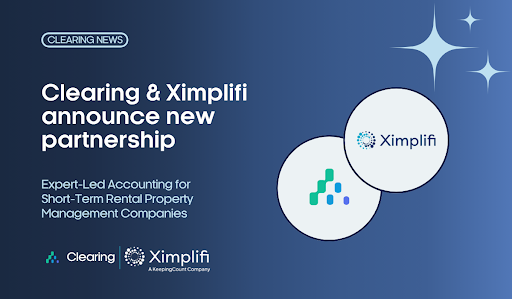
.png)
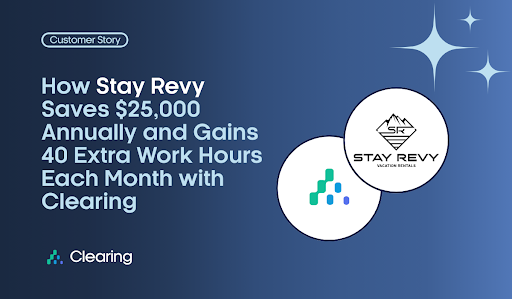
.png)
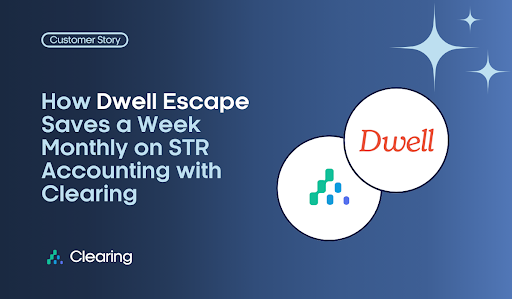
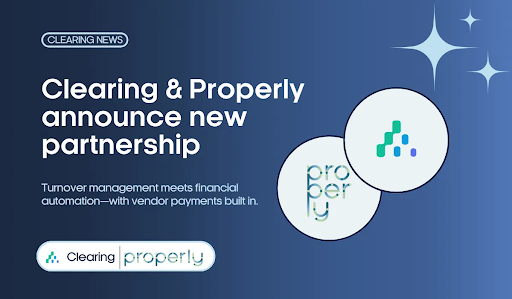
.png)
.png)
.png)
%20(1).png)
%20(1).png)
%20(1).png)
.png)
%20(2).png)
%20(1).png)
%20(1).png)
.png)

.png)
.png)
.png)
%20(1).png)
.png)
.png)
.png)
.png)
.png)
.png)
.png)
%20(1).png)
.png)
.png)
.png)
%20(1).png)
%20(1).png)
%20(1).png)








.jpg)
%20(1).png)
%20(1).png)
%20(2).png)
%20(1).png)

%20(1).png)
%20(1).png)
%20(1).png)



%20(1).png)
%20(1).png)
%20(1).png)
%20(1).png)
%20(1).png)


%20(1).png)
%20(1).png)
%20(1).png)
%20(2).png)
%20(2).png)



%20(2).png)


%20(2).png)
%20(1).png)
.png)


%20(2).png)
%20(2).png)

.jpg)
.png)
.png)
.png)



.png)
